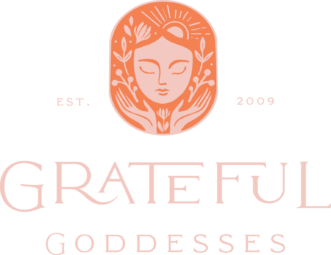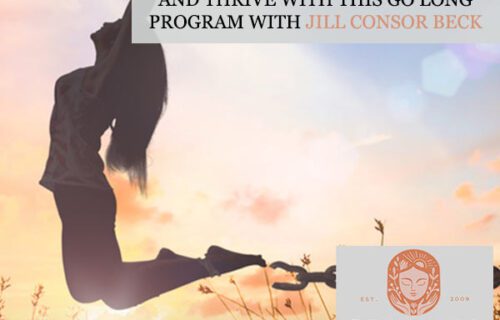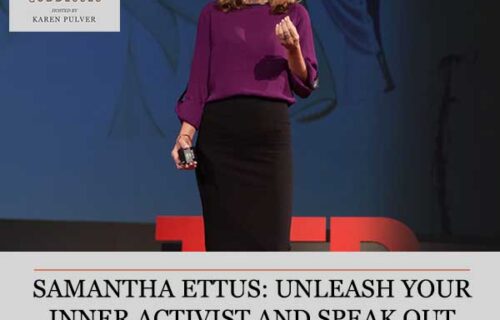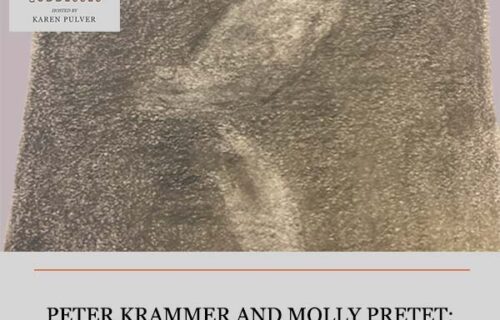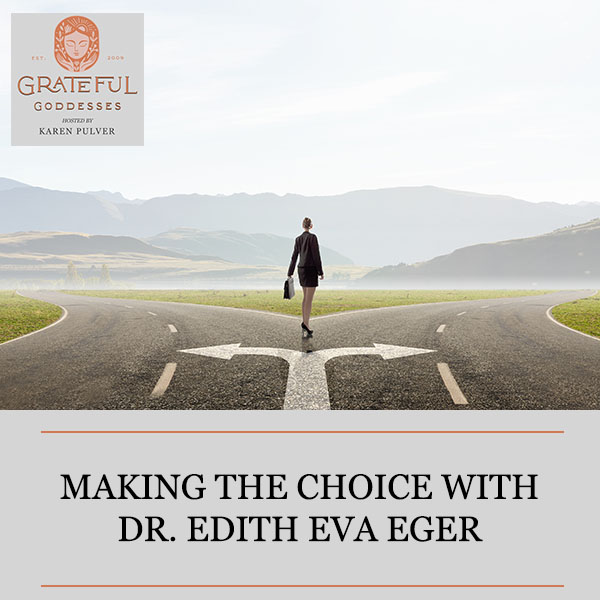
Making The Choice With Dr. Edith Eva Eger
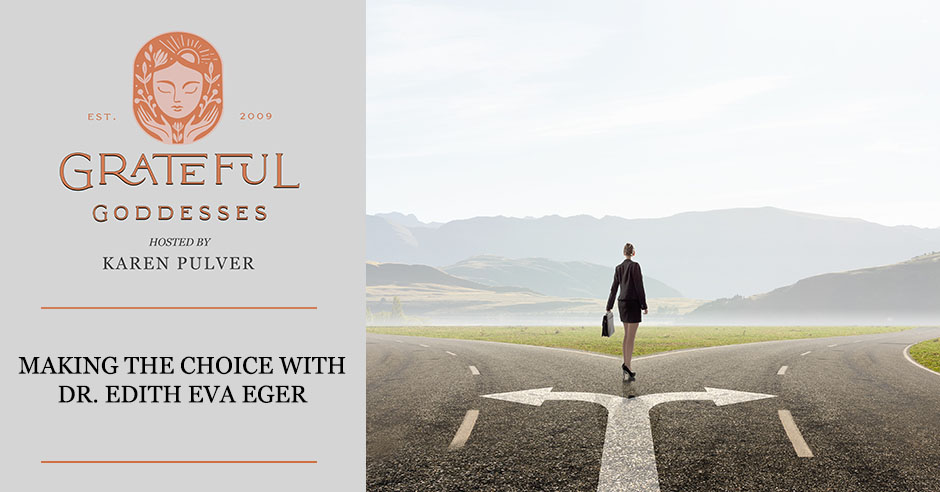
Throughout our day, we make choices about ourselves, our bodies, our spirits, our minds, and about other people. We choose whether to hold on to anger or to see beyond that and feel the fear underneath. We decide in that space to react or respond, to discover rather than recover. We choose to take anxiety and turn it into excitement. We decide if what we are paying attention to is going to empower us or deplete us. What choices are you making each day that impact your life? Join Karen Pulver and her Goddesses in an engaging discussion with Holocaust survivor, trauma specialist, Dr. Edith Eger, as we dive into anger, fear, and ultimately forgiveness to others. Let us immerse ourselves with her story and mission to help others overcome the prisons in their minds.
—
Watch the episode here
Listen to the podcast here
Making The Choice With Dr. Edith Eva Eger
We are humbled as we are going to be having the ultimate goddess, Dr. Edith Eva Eger. Dr. Edith is a native of Hungary. Edith Eva Eger was a teenager in 1944 when she experienced one of the worst evils the human race has ever known. As a Jew living in Nazi-occupied Eastern Europe, she and her family were sent to Auschwitz, the death camp. Her parents were sent to the gas chambers, but Edith’s bravery kept her and her sister alive. Towards the end of the war, Edith and other prisoners had been moved to Austria. On May 4th, 1945, a young American soldier noticed her hand moving slightly amongst a number of dead bodies. He quickly summoned medical health and brought her back from the brink of death. After the war, Edith moved to Czechoslovakia, where she met the man she would marry.
In 1949, they moved to the United States. In 1969, she received her degree in Psychology from the University of Texas, El Paso. She then pursued a Doctoral internship at the William Beaumont Army Medical Center at Fort Bliss, Texas. Dr. Eger is a prolific author and a member of several professional associations. She has a clinical practice in La Jolla, California and holds a faculty appointment at the University of California, San Diego. She has appeared on numerous television programs including CNN and the Oprah Winfrey Show.
In her book in the foreword, which was written by Philip Zimbardo, PhD, it states, “It is the fact that Edie has used her experiences to help many to discover true freedom. In this way, her book is much more than another show a memoir, as important as such stories are for remembering the past. Her goal is nothing less than to help each of us to escape the prisons of our minds. Each of us is in some way mentally imprisoned and it is Edith’s mission to help us realize that as we can act as our own jailers, we can also be our liberators.” In addition, he states, “To be a hero requires taking effective action at crucial junctures in our lives to make an active attempt to address injustice or create positive change to the world. To be a hero requires great moral courage. Each of us has an inner hero waiting to be expressed.”
—
Dr. Eger, what should we call you?

Dr. Eddie, that’s how people call me.
Thank you, Dr. Eddie. Remember we met when I bought your book and I recommended it to my dear friend in La Jolla. She contacted you. You met with her and helped her so much with many things in her life. You came to a book club, the Mother-Daughter Book Club, with my daughter and shared many amazing insights. Here you are joining me and my girlfriends, Alyssa, Dina and Rachel. This is our show, Grateful Goddesses, where we talk about our lives. We talk about things we’re learning, our journeys. Dr. Eddie, you are the ultimate goddess. We have so much though yet to learn. We’re appreciative of everything in our lives. I know you’ve been through some horrendous struggles when you were younger and with what’s going on in the world, first COVID, and now all the social injustices and us as for white women, we want to know what we can do. What choices can we make? Can you help us learn about this?
One of the things I can tell you that you cannot give what you don’t have is I ask you to love yourself. I ask you to get up in the morning and look in the mirror. Say hello to the you that will never, ever be replaced. You’re one of a kind. There will never be another you. It starts and ends with us that you’re born alone and you die. There is something in between and it’s called a lifestyle. The lifestyle, thank God, you’re asking me what the white women can do? We’re human beings. We’re not better or less than anybody else. It’s the quality of your life that hopefully this is a good time out for you to take a good inventory where you are. Maybe you are a wonderful mom, wife and daughter, but that’s what you do. It’s not your being. It’s your doing. I hope that you examined that being the way you would like to be remembered. Goals right now because you already raised your children. You may be as happy as you are, but you may want to go back to school. You may want to get your license as a psychologist as I did.
You may want to commit yourself to someone or something other than you. You’re doing that already, but you may not give yourself enough credit. Sometimes people you go into the, “Yes, but I didn’t do this. Yes, but I didn’t do the other.” Rather than saying, “Yes but,” change it and you say, “Yes and,” then furthermore. Get rid of two words like always, I always do that. I never say up until now I did. Now I can have a new beginning. There is no going back. It can be a very exciting time in your life, what you’re holding onto and what are you willing to let go of? Like the need for the approval of everybody. I am happy now because I like sending it away. It’s not the base. It’s the cherry on the top and the whipped cream. It’s extra. The beast is inside. I am a person dedicated to prevent anything like this happening again. I don’t have time to complain. I say, “Yes, and I can take anxiety and turn it into excitement.”
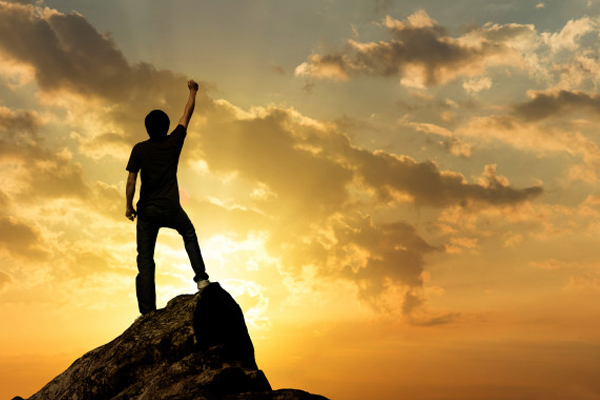
You have a calling. I have a calling too. After two beautiful girls, my son was born and my husband was happy. My late husband’s grandfather then was responsible for us to come to America. He lived in Chicago. He built a temple to Uncle Albert Eger. Illinois is dear to me, but my son didn’t develop as the girls did. If you read my book, he didn’t walk and didn’t talk. I was told to prepare my son to go to a school for talented children. I was sent to Johns Hopkins and a beautiful neurologist of my son said, “Your son is not retarded.” He looks drooling. He told me he needs occupational speech therapy. “It’s up to you. You’re going to do what you can do and then your son will do anything anybody else does. It’s going to take him longer to get there.” You see exactly that’s what I did. I came back to Texas and I dropped out of school. My son, John, graduated as a top ten student from the University of Texas. We are given opportunities for opportunities not to recover but to discover the strengths that suffering gives you. The more you suffer, the more strength you develop inside you and no Nazi could ever take that away from me.
Dr. Eddie, it’s great to meet you. We spend a lot of time in this group talking about taking inventory, taking stock of our lives and how we can improve the quality of our lives. In your book, which we all had the pleasure of reading, you talk about helping your patients experience freedom from their negative thoughts, their self-defeating behaviors, and you encourage them to make this choice to be free of this victim mindset. As we get older at this phase in our lives, it seems like so much of these thoughts, the narratives, the stories we tell ourselves get more and more ingrained in us. As we age, they become part of who we are, what we tell ourselves. I would love to know, I know as a group, we would love to know what are some of the tools that you offer to your patients to help them find freedom from whatever it is holding them back. What does that journey look like for somebody?
What I like you to do is think about your thinking because what you think you create, and then pay attention to what you’re paying attention to. Any behavior you pay attention to, you reinforce the behavior that you want to extinguish. Become your good therapist by asking yourself, “Is this going to empower me or deplete me?” Talk to yourself and then you’ll find out that everything starts with your thinking. It is a gift in everything. I was told in Auschwitz that the only way I will get out of it is as a corpse that I’m self-human. I differentiate between reacting or responding.
I always ask young people especially to buy the book called The Karate Kid and find out that the best power is brainpower. If someone calls your name, especially bullying, I like to lecture a great deal on that to young people in the English language. When you are hearing the word, “You,” say to yourself, “I’m going to be dumped on. You are stupid. You do this to me. You make me angry. Nobody makes me angry. I make me angry because your behavior is unacceptable to me. I’m judging you,” and so on. It’s important that you become your good parent and ask yourself, “Is this good for me?”
Rather than saying “yes,” say “yes and.” Share on XIf you see the chocolate cake that you love, but you have to stay away from sweets. You have a temptation, so you can’t have the freedom of choice. You start bargaining. Soon you’ll have a little wine and you’ll have another little wine. It turns into a bottle of wine. It’s important for you to have a goal. Furthermore, see what you’re focusing on because anything you focused on has to be in alignment to get you to your goal. What goals do you have? The question is not, “Why me?” but “What now?” I always like to live in the present and have in the morning an arrow that I choose to follow. It can arrow a goal.
I wanted to talk a little bit about in your book when a judge gives you a racist boy to work with. It was beautiful how you took us, the readers, through the introduction you had with him. In the end, you got to this place where you saw the common between the two of you. Speaking to this idea of forgiveness and you going and forgiving Hitler as well, can you speak a little bit about how you did that? It seems like such a big thing to forgive.
I believe in a loving God. I am hopeful to live that the way that I let this love, joy and passion in life. Anything other than that, I know and I learned I was not born with it. We are not born to hate. We hope to get rid of the us and them mentality. When this young boy was sent to me, people don’t come to me, they’re sent to me. I lectured at the medical school and new residents come. I tell him that your patient is your teacher. What you don’t like in them, you want to look at that in you.
When this young boy told me, got up and said, “It’s time for America to be white again. I’m going to kill all the Jews, all the Mexicans and I must scan the way in Texas and all the Chicanos.” If I would have reacted, I know I would have shaken up this boy. I know I would have dragged him to the corner. I know I would step on him and tell him, “How dare you talk like that? I was in Auschwitz and I saw my mother going to the gas chamber.” This is the time when I talked to God, as I did in Auschwitz that I found God. God helped me to change hatred into pity. I said, “God, what’s the meaning of this young boy?” God said to me, “Find the bigot in you.” I said to God, “It’s impossible. I came to America penniless. I found out there is prejudice in America because I went to the bathroom and one of them was colored in a factory where I worked in 1949.”
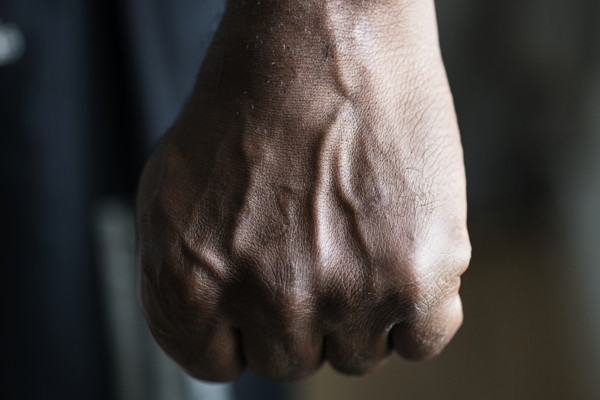
I enjoined the NAACP. I marched with Martin Luther King. He said, “Love is not what you feel. It’s what you do.” God said, “Find the bigot in you.” I realized that he was this young boy, who was thrown out of his home. He joined this guy. His name was David Koresh. Maybe you can do some research on him. He told him how to go and destroy others because that would make him feel better. He’s already on the bottom of the totem pole. I began to feel sorry for this fourteen-year-old. You create the atmosphere in your home. Mostly men do that. I created a place for him that he could feel any feelings without the fear of being judged. I sat down more because love is time. I hope that you can structure your time between working, loving and playing. I hope you love what you’re doing because I don’t have a job. I do my calling and I’m grateful that I sat right then feeling young and living in the present. That’s what I bring here. I have 3 children, 5 grandchildren and 6 great-grandsons.
You are inspiring. The compassion that you can feel for others, I find extraordinary. You have been in such an extraordinary circumstance and for you to come out of that. I know that you view it as it was the only way that you could survive and to move forward was to reconcile that. I find it incredible and building off of what Dana said about how you could find the compassion for others, for people that say that they hate you, but to be able to look beneath that and even look beneath what Hitler did and to understand that.
He didn’t do it alone. I always tell people to read a book by Max Weber, who wrote a book called The Protestant Ethic and the Spirit of Capitalism and refers to the Jewish people as a pariah. He didn’t do that. You see when a country suffers economically, they’re looking for a scapegoat. That’s what the Ayatollah did also in Iraq, “Let’s go kill Carter.” You direct the attention outside of what is going on. You have to be careful that there is no love without hate. There is no summer without winter. There is no life without death. You are angry. Chances are, you gave away your power because underneath anger is a lot of pain and most of all, a lot of fear. When you’re angry, you may want to write down all your fears.
The biggest fear of a child is the fear of abandonment. Most of us, especially girls, become what the dynamics of the family requires. You’ll become the responsible one or the funny one or whatever the dynamics require. If you are a firstborn child, you become the responsible one. You become the role model to the others. That’s the question that I will ask you, “When did your childhood end?” We grieve over not what happened, but what didn’t happen? The childhood that I never had. The dating I never had that. I would date and dump that guy. Date another one and dump that guy. I ran from here to there because there was no PTSD. I wanted to get normal. When we were liberated, we got married but we didn’t know who we married. People ask me, “Did you love your husband?” My definition of love is the ability to let go.
Take anxiety and turn it into excitement, see what you are holding on to and what you are willing to let go of. Share on XAsk yourself what you’re holding on to and what are you willing to let go of? We carry messages with us. We call them injunctions. My mother told me, “I’m glad you have brains because you have no looks.” Even in a concentration camp when there were some political prisoners eating, when we were bombed, I wanted my sister to go ask for food because I didn’t think that I could do it too. She was the pretty one. I could have gone and asked for food myself, but what you do want to do is write down all your fears and also write down a way that you may be are holding on to something that is not true. It’s mythology. If you call me any names, I don’t take it personally. If you call me a stupid idiot, I’m going to say, “Thank you for your opinion.”
It’s important that if someone throws out the rope, don’t pick it up. Don’t argue with people. If someone tells you the Holocaust didn’t exist, you can say, “No, I know Dr. Eger.” Say, “I hope you go to the German Consulate.” Germany did fess up. The largest Jewish population is in Germany. We want to be sure that you recognize once you are angry, you’re hurting yourself. I am selective. Who’s going to get my anger? I’m angry, but I want to decide how long will I hold on to it because it’s eating me up. Selfish is spelled with self-ish and take of this self that you’re congruent with your mind, your body and most of all, your spirit is in harmony.
I brought along the flowers that my husband gave me for our anniversary. They smell good. I wanted to know what are some fun things, favorite things of yours? What are your favorite things, not just objects, but something that you like to do?
I love music. I love dancing. I love reading my books. I’m picking them up and putting them back. I pick another one. I read at night mostly, but I do watch Jeopardy. I’m addicted to Jeopardy. I go to my daughter, so we all sit down. My son-in-law is a Nobel Prize winner. My daughter is a brilliant child psychologist. Three of us are sitting knowing the answers.
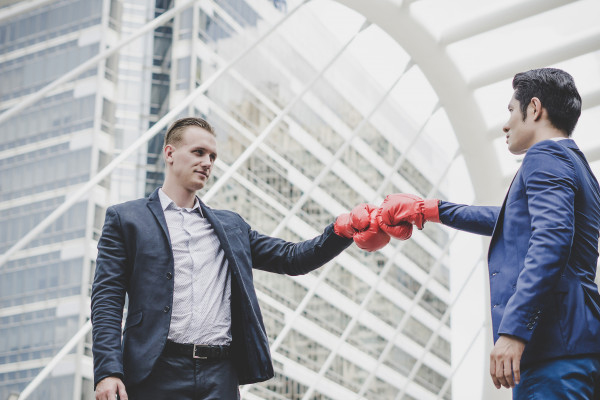
I was a teenager in the ‘80s in Central Illinois. I was 1 of 5 Jews in my high school. I experienced a lot of anti-Semitism. When people are hurting, they blame others. Most of my high school were farmers. When the farmers weren’t doing well in the ‘80s, there was a ton of anti-Semitic literature on a rise. It always seems crazy. You’re blaming the Jews for the crops not doing well. That inner child in me, I never dated growing up. I feel like I missed out on that. Even when I see romantic movies now, I cry hysterically and I know it’s that pining and loss. Now, I have teenage boys and my eldest is in college. During this quarantine, they’re missing big moments. They’re missing graduations and they’re missing different opportunities for connection and education doesn’t feel the same. It’s not to the magnitude of the losses that you experienced. When you speak to the children now who are still feeling the loss and they feel it greatly because to them it’s all they know. What would you say to them?
I ask you never to cheer up a depressed person. I ask you to keep that feeling company wherever they are. The way you do that in the English language to go from here, don’t try to understand something. I don’t know that word, “I don’t want.” I would say it sounds like you’re sad about that because it’s about grief, not what is happening, but what is not happening. Go to the heart language and keep that feeling company. Don’t say, “Yes, but you have so much to be thankful for.” It doesn’t mean anything at all. Stay with that feeling and keep it company. You can survive it. It is temporary. It’s not permanent. It’s up to me how I use that time that maybe I start to write a book. I do something that I previously avoided. Maybe I pick up the book by Dr. Eger that I thought that it’s for old people. It isn’t. It’s not old people. Hopefully, you’re going to be 90 as well and decide every moment how you’re going to be for something rather than against.
I got everyone a book and I’m going to let them all know. Dr. Eddie, I pre-ordered four of your latest book, The Gift. Girls, when they come out, I’ll be delivering them to your door. You are such a gift to us, Dr. Eddie. Thank you for joining us. We are going to use this time to move forward, to make good choices.
The first question is when did your childhood end? The second question is would you like to be married to you?
Use the motto – “Up until now I did and now I will...” Share on XProbably not. Maybe we have a lot to discuss. That’s an interesting way to leave us. Thank you, Dr. Eddie. Let’s talk about it. What are your takeaways?
I’m trying to think about when did my childhood end. I’m thinking about not being married to me. I wanted to do so much work on being a better person that I’d want to be married to.
The whole forgiveness is so hard to do, but it’s so freeing when she took the pen and let go. It seems simple but hearing her is inspiring. Rachel, I love to answer your question too about sitting with our children. I’ve been trying to cheer up my kids because they too are graduating both of them. I’m buying balloons, streamers and graduation cakes. Meantime, I’ve never said like, “It’s okay to be sad. This sucks.”
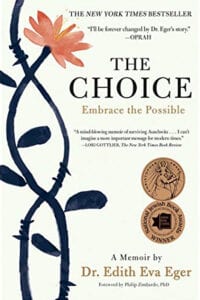
I don’t think that’s innately the way we respond. She had so much wisdom in that short time with us not to say that I didn’t expect it because I did. To your point of we want to fix the problem for our kid instead of sitting with them and being talk. I thought what was super important that she said language that I don’t use this, this is temporary. This isn’t permanent.
To think that she thought those while she was in Auschwitz, she had hope.
I’ve had that conversation with my son in college because I feel so bad for him. It’s such a limited time and I’m like, “I want you to know, I know it sucks.” I feel that this has been the hardest on him, this period of time, this feeling of loss. I feel like she is like a modern-day Jewish Buddha. She is full of wisdom. There’s no facade with her. There’s nothing that’s she’s working to try to be there. She is so genuine to her core. That’s why I felt like it spills out of her.
I did want to ask her favorite things because it’s about her now and her showing us her grandchildren, the twins that were beautiful. I do feel like she is the ultimate grateful goddess. Talk about going within and learning about herself and all of the lessons that she’s teaching to the world. She’s telling us to act and to do. I’m happy that she shared all of that wisdom with us. Thank you too for coming. Goddesses, if you would like to learn more about Dr. Edith Eger, please go to our website, www.GratefulGoddesses.com, where there will be links towards her book, The Choice, as well as you can preorder her latest book that’s coming out called The Gift. Thank you for joining us.
Important Links:
- Dr. Edith Eva Eger
- The Karate Kid
- NAACP
- The Protestant Ethic and the Spirit of Capitalism
- The Gift
- The Choice
About Dr. Edith Eva Eger
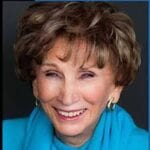 A native of Hungary, Edith Eva Eger was just a teenager in 1944 when she experienced one of the worst evils the human race has ever known. As a Jew living in Nazi-occupied Eastern Europe, she and her family were sent to Auschwitz, the heinous death camp. Her parents were sent to the gas chambers but Edith’s bravery kept her and her sister alive. Toward the end of the war Edith and other prisoners had been moved to Austria. On May 4, 1945 a young American soldier noticed her hand moving slightly amongst a number of dead bodies. He quickly summoned medical help and brought her back from the brink of death.
A native of Hungary, Edith Eva Eger was just a teenager in 1944 when she experienced one of the worst evils the human race has ever known. As a Jew living in Nazi-occupied Eastern Europe, she and her family were sent to Auschwitz, the heinous death camp. Her parents were sent to the gas chambers but Edith’s bravery kept her and her sister alive. Toward the end of the war Edith and other prisoners had been moved to Austria. On May 4, 1945 a young American soldier noticed her hand moving slightly amongst a number of dead bodies. He quickly summoned medical help and brought her back from the brink of death.
After the war Edith moved to Czechoslovakia where she met the man she would marry. In 1949 they moved to the United States. In 1969 she received her degree in Psychology from the University of Texas, El Paso. She then pursued her doctoral internship at the William Beaumont Army Medical Center at Fort Bliss, Texas.
Dr. Eger is a prolific author and a member of several professional associations. She has a clinical practice in La Jolla, California and holds a faculty appointment at the University of California, San Diego. She has appeared on numerous television programs including CNN and the Oprah Winfrey Show; and was the primary subject of a holocaust documentary that appeared on Dutch National Television. She is frequently invited to speaking engagements throughout the United States and abroad.
